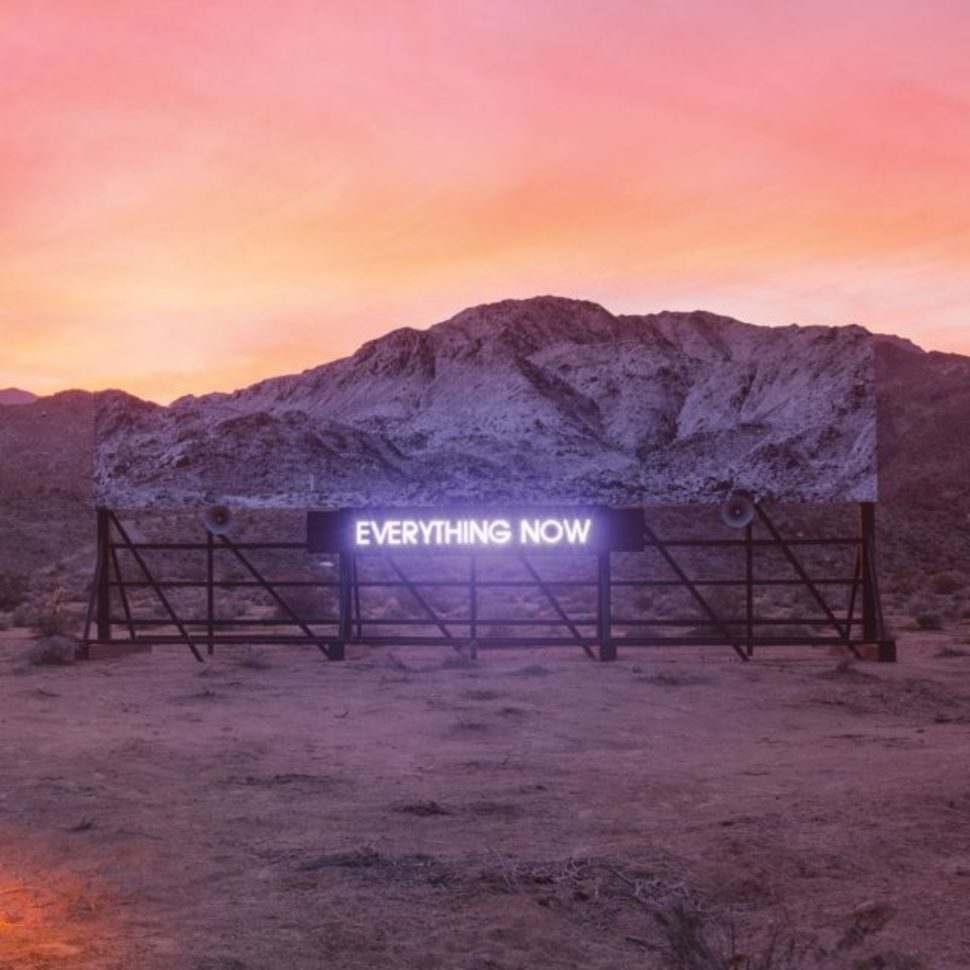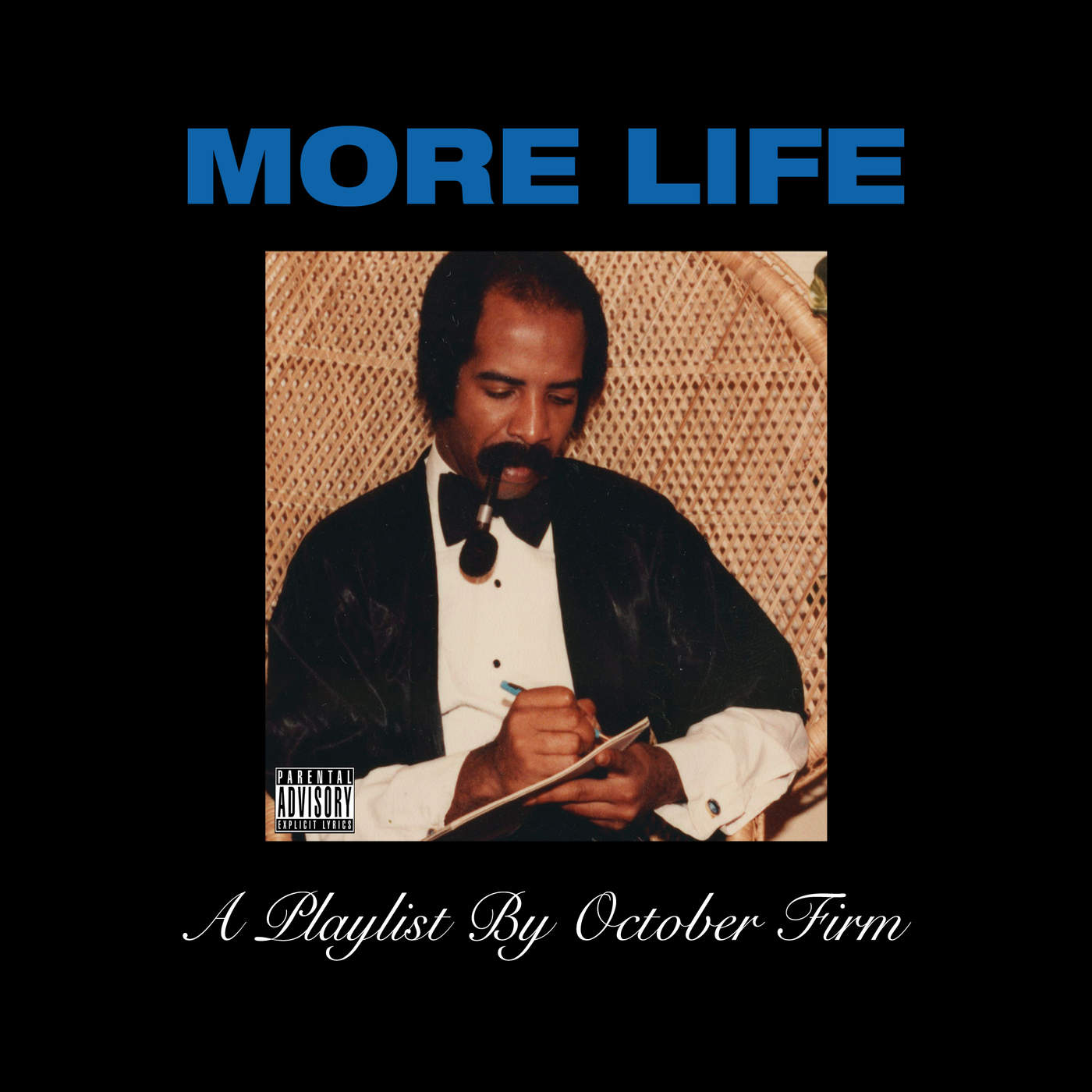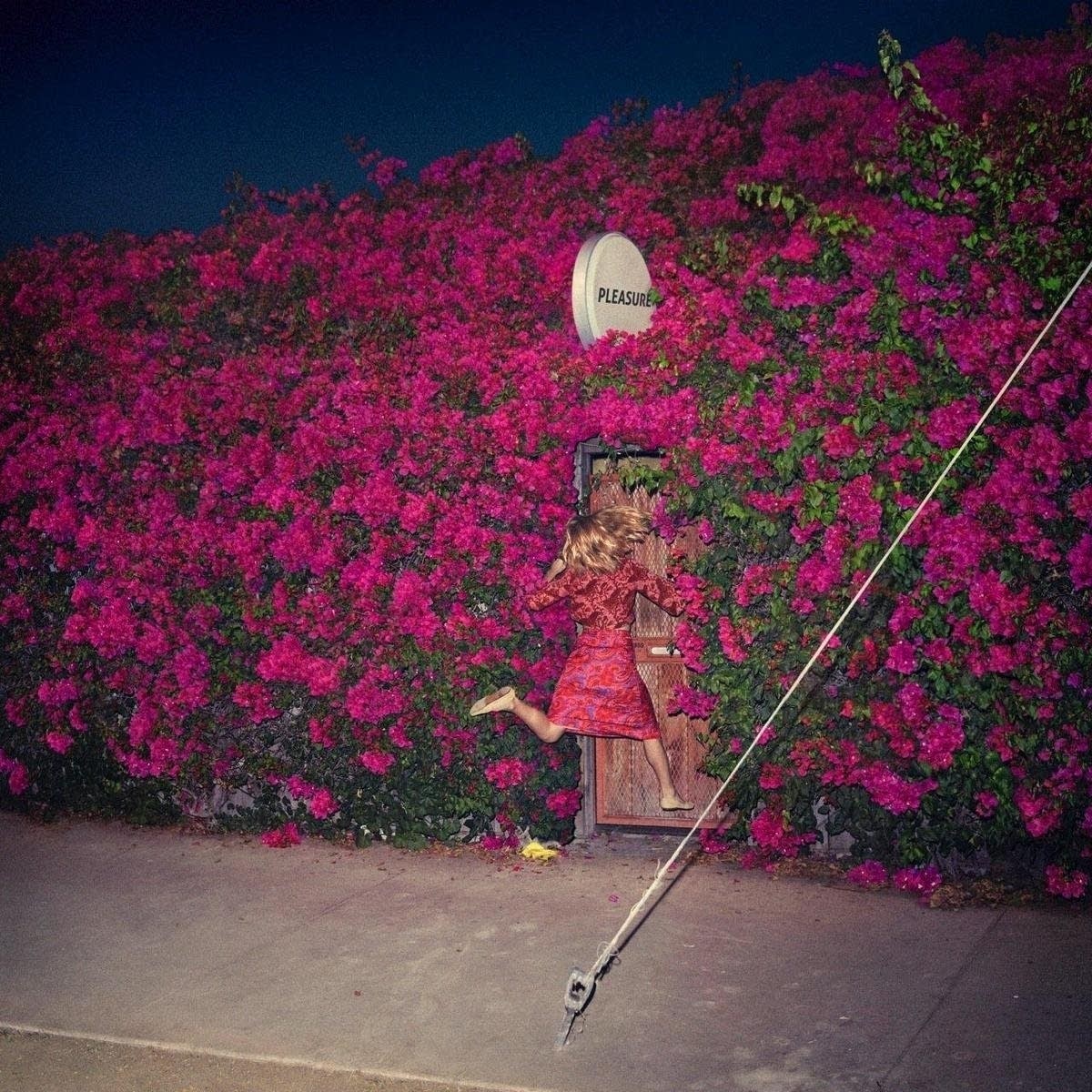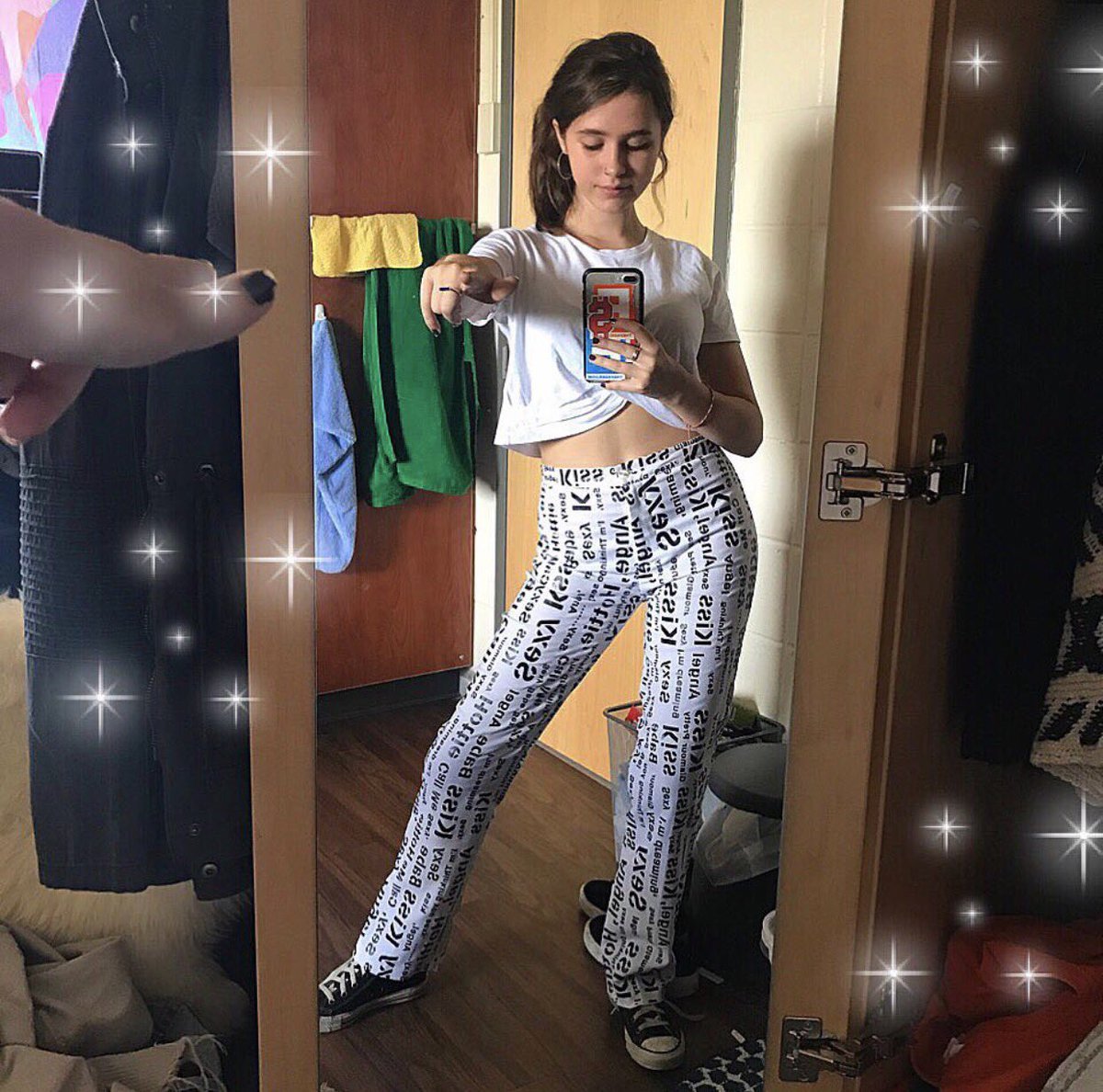I’m not one to defend mediocrity. Some things are just aggressively “alright” and DJ Khaled tends to be one of them. He’s not an artist in the traditional sense of the word, in fact putting him in a box is actually kind of hard. He’s a Snapchat-famous DJ, record producer, and meme machine with just a few more catchphrases your average Saturday morning cartoon character. While his musical contributions tend to be nothing more than shouting his own catchphrases in between (or directly over) a rapper’s bars, he also serves an important role as a Nick Fury-like assembler of talents.
In the wake of this year’s Grateful, I’ve found myself reflecting on DJ Khaled’s prior release with a surprising amount of fondness. While I won’t defend mediocrity on an artistic level, that’s not to say there isn’t a time and a place for it. The real problem is most DJ Khaled albums are the musical equivalent of throwing shit at the wall and seeing what sticks. Sometimes you’ll get a Drake-bolstered summer anthem, or strike gold with an unexpected artist pairing. But more often than not you’ll end up with a by-the-numbers hip-hop track that feels market tested as fuck and sounds like six different people all sending verses to each other via email over the course of months.
And I can’t tell if it’s nostalgia for summer 2016 or genuine appreciation, but Khaled’s skill as a musical host has never been more on a more impressive display than 2016’s Major Key. In fact, I’d go as far as to say it’s a flawless album. Now before you close the tab let me explain myself. I don’t mean flawless in that it stacks up to The Beatles or anything, I mean that every track on it is great and serves a different purpose.
While I usually hate track-by-tracks, I think Major Key is an album that would benefit from this type of dissection. There is honestly an impressive number of sounds being explored on this album. The collaborations feel fresh, and Khaled’s typically-shoehorned catchphrases actually fit into the album unobtrusively. It’s not high art, but it’s an incredibly-varied selection of songs that ends up feeling more like a curated summer playlist than a record by one man.
I guess that’s a point against the album since I’m basically saying Major Key is good because it doesn’t feel like a “DJ Khaled album,” but his skill here wrangling the number of artists and sounds is worth writing about. He’s a host and curator, and this album is the most consistent of his career. It’s commendable, especially when contrasted with the uneven follow-up we just received.
1) I Got the Keys (feat. Jay Z and Future)
Major Key begins with a fittingly-named banger that allows Jay-Z to don his jewelry and flex for the world once again. The track sees Future relegated to the song’s chorus while Jay-Z comes in with two of the best verses we’ve heard from him in years. While the recent release of 4:44 signals a more grown-up and fatherly shift in Jay’s sound and topics, it’s nice to have one (possibly final) send-off to Big Pimpin’-era Hov. Yes the chorus is repetitive, but 2016 was host to a rash of intentionally-repetitiveFuture-led choruses (including a second one later on this very album). I like that these songs are using Future for his unique textured voice as opposed to his tired lean-soaked raps. As a whole, the song has a hypnotic siren-like beat that Jay rides nicely and it ends up serving as a perfect energetic opener.
2) For Free (feat. Drake)
A Drake feature is practically a tradition on DJ Khaled albums at this point. In addition to the pair’s storied history, a Drake feature almost guarantees a song’s commercial success and a nomination for the elusive “Song of the Summer” title. Released as Major Key’s first single, the song did numbers but failed reach the pervasiveness needed to truly become the official song of the summer (despite Khaled’s claims on the song’s outro.) It’s still a nice bouncy Drake track that’s pool-party-ready, and furthered Drake’s exploration of the dancehall-esque sound.
3) Nas Album Done (feat. Nas)
On “Nas Album Done” Nas himself commandeers an entire track simply to spit bars for three minutes straight. With no chorus, and minimal intrusion from Khaled, this is a song of pure hip-hop proficiency that addresses the political climate of mid-2016. The title refers to Nas’ (still-unreleased) forthcoming album which will be his first in over five years. As such, this Fugees-sampling track serves as an appetizer for the bars to come on his next record.
4) Holy Key (feat. Kendrick Lamar, Big Sean, and Betty Wright)
Easily the track I’ve listened to most off of the album, “Holy Key” is a fast-moving and hard-hitting pump-up jam. The song that calls to mind Sean and Kendrick’s previous collaboration, the world-concerning “Control” which was a pivotal moment for the hip-hop scene as a whole. While “Holy Key” doesn’t quite recapture the fire of “Control” (a lot of time has passed since 2013) it does manage to capture a particularly-strong Big Sean verse and one of the most ferocious features of Kendrick’s career.
5) Jermaine’s Interlude (feat. J. Cole)
After the abject fire of “Holy Key” things slow down a bit for a bit of a breather on the J. Cole-helmed “Jermaine’s Interlude.” It provides some much-needed pathos after the blitz of hyper-proficient verses on the first few tracks of the album. The interlude throws bone to the very specific yet ravenous fan base that J. Cole has cultivated since his breakthrough 2014 Forest Hills Drive. The mellowed-out track injects more of a “conscious” sound into Major Key that breaks up the album’s themes and showcases a surprising amount of well-articulated topics for an interlude.
6) Ima Be Alright (feat. Bryson Tiller and Future)
In the album’s most flaccid track Future and Bryson Tiller trade verses over a dreamy beat that continues the slower late night vibes of the last track. The song showcases a particularly-animated Future verse that’s sandwiched in between two remorseful Tiller hooks that discuss the pratfalls of fame. It’s capped off with a verse from Tiller and a surprisingly funny outro by Khaled.
7) Do You Mind (feat. Nicki Minaj, Chris Brown, August Alsina, Jeremih, Future, and Rick Ross)
From there the album continues its stretch of slower tracks with the overtly-sexy “Do You Mind.” The track combines Chris Brown and August Alsina vocals to create an earworm of a chorus that Alsina then commandeers for a short verse. From there the two throw to Jeremiah who adds a third layer of R&B sexiness before another chorus swaggers in. The track takes a hard turn as Future and Rick Ross come in with two short verses, but Nicki caps it all off with an incredibly-sung bridge right before the song’s end. It’s a radio-ready R&B track that sounds different than anything else on the album. With a packed guest list, this is a song “for the ladies” and it does its job well.
8) Pick These Hoes Apart (feat. Kodak Black, Jeezy, and French Montana)
As you would expect from a song with this title, “Pick These Hoes Apart” represents a shift back towards full-on hip-hop within the album. Featuring some of the most objectively-disgusting lines on the entire record, the song still gets some points for bringing together such a disparate group of rappers and shining a light on Kodak Black right as he was blowing up. It shows a lot of foresight on Khaled’s part. It’s also worth noting that the track features a great verse from French Montana who I’ve never particularly cared for, but he manages to utilize his brand of slurred half-sung rap here on a beat that sounds like it was made for him.
9) Fuck Up the Club (feat. Future, Rick Ross, YG, and Yo Gotti)
The album’s hip-hop mode is decidedly back in full swing on “Fuck Up the Club” which features the album’s second supremely-repetitive Future hook, a roster of legit street rappers, and an absolute banger of a beat. The track sees YG and Yo Gotti at the height of their powers after their high-profile releases of Still Brazy and “Champions” respectively. Everyone comes in with heat, and the track’s beat is relentless with little breathing room for anything besides explosive forward momentum.
10) Work for It (feat. Big Sean, Gucci Mane, and 2 Chainz)
Arguably one of the most star-studded tracks on the album, “Work for It” subverts expectations by being a bit of a slower track that finds Big Sean at the helm. It really does telegraph the sound on Sean’s upcoming I Decided. but remains a track that fits its other guests suitably. It’s apparent that the recently-released Gucci and always-humorous Titti Boi were both in “creation mode” on this track amidst a slew of their own 2016 releases. It may not change the Big Sean hater’s minds, but it’s a left turn that I didn’t see when first listening to the album.
11) Don’t Ever Play Yourself (feat. Jadakiss, Fabolous, Fat Joe, Busta Rhymes, and Kent Jones)
With a lineup of guests who are all in their 40’s (Kent Jones notwithstanding) I see “Don’t Ever Play Yourself” as the dedicated “oldhead” song on the album. Reminiscent of Compton’s “Loose Cannons,” or “One Shot One Kill” this track sounds like a different generation of rappers who all decided to hop on a track with one thing to prove: that they’re far from “too old this shit.” It’s apparent why these rappers have all stuck around, they all have different voices and at this point, they’ve honed their craft enough to make it all look effortless.
12) Tourist (feat. Travis Scott and Lil Wayne)
“Tourist” had been floating around the internet for about a year at this point as a semi-unfinished Travis Scott solo song. In its appearance on Major Key, we hear a remastered version with a surprise Lil Wayne feature added on and (luckily) little-to-no Khaled yelling. It’s a hazy track that retains the signature Travis Scott sound while echoing 3500’s drowsy unwinding instrumental.
13) Forgive Me Father (feat. Meghan Trainor, Wiz Khalifa, and Wale)
When Major Key’s tracklist was officially released a few weeks before the album’s drop, I remember one thing concretely: the internet’s reaction to this song’s feature list. First off: what a weird collection of people. Second: Wiz is washed. Third: Meghan Trainor? The “All About That Bass” chick? I don’t know why, but I’d like to pat myself on the back for believing that this song wouldn’t be as bad as everyone was expecting it to be. I may just love being a contradictory fuck, and maybe it’s just because I went in with low expectations, but I find “Forgive Me Father” a corny, yet inspirational song that isn’t offensive in the least.
14) Progress
The last song on Major Key sees Khaled ceding Major Key to Jamaican singer Mavado. This is actually the second time this handoff has happened (with the third instance occurring on 2017’s Grateful) perhaps signaling a new inner-album tradition. It’s a tropical island song that calls to mind flashes of Khaled’s snapchat stories watering and talking to his flowers in a sunny yard. It’s a “full circle” song about progress that serves as the perfect conclusion to the album by encapsulating everything we’ve heard up until that point.
Major Key has a little bit of everything. Like most DJ Khaled records you could cherry pick single songs for the right mood, but it also holds together surprisingly well as an album. There’s no “journey” or “resolution” but you could easily sit down and listen to all 58 minutes of this and enjoy yourself. It’s a great summer album and has enough variation to keep you wondering (or excited for) what’s coming next. It’s a “playlist” before Drake did the same thing a year later. That’s not to say all DJ Khaled albums aren’t playlists (because they’re all like this) but Major Key is the first time it crystallized into something substantive that was fully enjoyable from beginning to end.
In contrast, 2017’s Grateful is overly-long (21 tracks and almost 90 minutes) and released in direct contrast to Calvin Harris’ polished Funk Wav Bounces Vol. 1 which did the “DJ Khaled thing” in a better, more pointed way. But all this said I do believe Major Key to be a legitimately great hip-hop album that stands on its own. I’m honestly in shock I was able to write 1,000+ words about it, and I guess that endorsement speaks for itself more than my praise ever can.
It’s an interesting dichotomy because Grateful featured songs like “I’m The One” and “Wild Thoughts” which were unequivocally more successful than anything off of Major Key. It ties back to the discussion I carried out earlier this month about the crossroads between commercial success and artistic fulfillment. Major Key was no flop, but by all accounts Grateful is shaping up to be a technically more successful album. I think that Major Key stands on its own better on an artistic level, but there’s certainly a difference between the two records.
“I’m the One” has been an earworm (and chart-topper) since its release as a single in late April, I’ll give it that. But I’d still pick Major Key over it, even if it doesn’t have the “single power” of Grateful. And (to circle back to the original topic) I’m not saying Major Key is high art. This shit isn’t Abbey Road, It’s not Darkside, it’s not even Cat Scratch Fever. For as much as I wrote above, I still think this album is only one step above mediocrity on an artistic level. It will probably age horribly in a few years, it has some questionable lyrics, and as a whole, it’s just a good collection of tracks rather than a compelling vision carried out by one creative force.
The point is, even with all those things weighing it down, it’s great at what it needs to be. Grateful isn’t as good as what it needed to be (which was the same thing as Major Key), but in the end, they both pale in comparison to albums that were crafted with time, care, and artistry. I’m not saying DJ Khaled isn’t those things, I’m just saying Major Key succeeds in every goal that it sets out to do. It doesn’t aim high, so it shouldn’t be judged on that level. Major Key is a stellar collection of incredibly-varied tracks that bring together a wide roster of hip-hop artists large and small. No two tracks sound alike, DJ Khaled plays an excellent role as artistic curator, and everything comes together nicely. On that scale, it’s as far from mediocrity as you can get.




























































